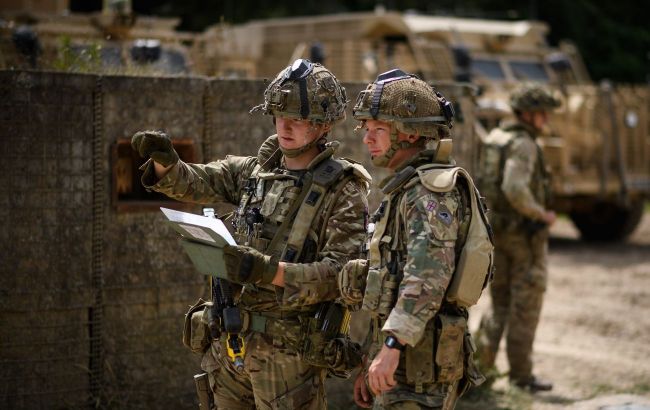'Coalition of the Willing' meeting: Why Europe sent a military delegation to Kyiv
 British military (photo: Getty Images)
British military (photo: Getty Images)
Today, on April 4th, a military delegation from the "Coalition of the Willing" arrives in Ukraine. This group includes European countries that are prepared to send their armed contingents to Ukraine in the future.
RBC-Ukraine explains what to expect from this visit and what Ukraine will discuss with European military officials besides the deployment of the contingent.
Content
Contingent and support plans
Although dozens of countries are involved in discussions about the upcoming mission, a narrow circle of countries, including France and the UK, is arriving in Kyiv, as reported by Ukrainian President Volodymyr Zelenskyy on April 1st.
Earlier, French President Emmanuel Macron, the author of the idea for the contingent, stated that the so-called support forces could be deployed after a ceasefire is reached.
"This reassurance force should not substitute the peacekeeping forces on the contact line or the strong and robust Ukrainian army," Macron said on March 26. However, the mission implies a long-term presence at designated strategic points within Ukraine, agreed upon with Kyiv. The task of the contingent is to ensure the deterrence of potential aggression from Russia.
According to Zelenskyy, the discussions are not only about the presence of the contingent and the future development of the Ukrainian armed forces but also their role in ensuring European security. Zelenskyy said that it was very important to understand what the future of the Ukrainian army would look like as part of the security of the entire continent.
As Macron stated, the delegation is also expected to determine what the future parameters of the Ukrainian Armed Forces should be.
Macron said on March 27 that it was necessary to determine what kind of army, naval capabilities, and air force capabilities Ukraine should have, as well as the format in terms of size, number of soldiers, and equipment, to be able to respond to potential Russian aggression and prevent the success of such aggression. This is necessary so that European countries can plan the scale of assistance and specify the contributions of each country from the "Coalition of the Willing" for the future.
Final format of the mission remains uncertain
The deployment of a military contingent to Ukraine has been actively discussed for several months at the level of diplomatic institutions. On March 27, a summit of state leaders was held in Paris to address this issue.
However, as RBC-Ukraine reported, various options for the mission are still being discussed. To a large extent, the choice of one format or another will depend on the nature of the ceasefire agreement with Russia. Achieving a ceasefire is an absolutely essential prerequisite for the deployment of any contingent - without it, no European troops will appear in Ukraine.
Nonetheless, there are already a number of technical and logistical issues that can be worked on, said analyst and head of the Center for Analysis and Strategy Ihor Chalenko in a comment to RBC-Ukraine.
"There are issues, for example, air cover - meaning from which European airfields European aircraft will be able to take off. And accordingly, all of this needs to be calculated and worked through - specifically the technical aspects," Chalenko noted in a comment to the outlet.
In addition, the discussion may involve the potential transfer of Ukrainian troop training from Europe to Ukrainian territory with the participation of European instructors. And ultimately, no such visit takes place without conversations about urgent assistance for Ukraine.
"This is about strengthening support here and now. This visit should be viewed in the context of President Zelenskyy's statements about the possibility of intensified offensives in three directions - concerning the Kharkiv, Sumy, and Zaporizhzhia regions," Chalenko said.
However, the key factor in this situation remains the ability of the US to pressure Russia into a ceasefire and a lasting truce. Without that, discussions about a European mission in Ukraine will remain just that - discussions.
RBC-Ukraine previously explained what the "Coalition of the Willing" entails, which countries are part of it, and in what formats the coalition provides assistance to Ukraine.

